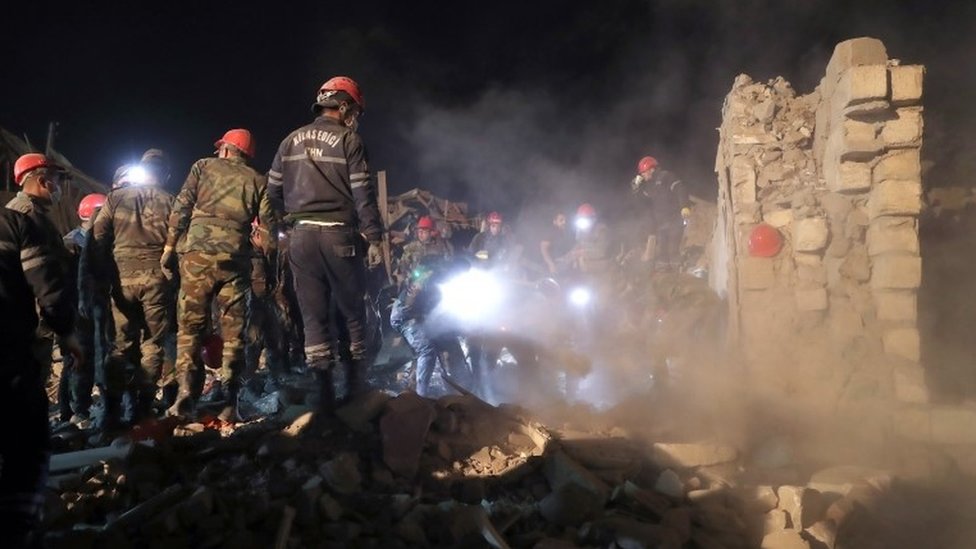Nagorno-Karabakh: Armenia and Azerbaijan agree new humanitarian truce
- Get link
- X
- Other Apps
Armenia and Azerbaijan have agreed to a humanitarian ceasefire in the disputed region of Nagorno-Karabakh.
The two confirmed the truce would begin at midnight local time (20:00 GMT).
The decision was taken in line with agreements that led to a ceasefire being signed last weekend. However, clashes continued despite that accord.
Fighting flared last month over a region internationally recognised as part of Azerbaijan but which is run by ethnic Armenians. Hundreds have died.
This is the worst violence in the region since a six-year war over the territory ended with a ceasefire in 1994.
Earlier on Saturday, both nations continued to trade accusations over violations of the Russian-brokered truce agreed last weekend and doubts are likely to remain following the latest statements.
What is the latest agreement?
Both nations confirmed the humanitarian truce, although few other details were given.
Azerbaijan's foreign ministry said the decision was "based on the statement of the presidents of the United States, the French Republic and the Russian Federation, representing the OSCE Minsk Group... dated October 1, 2020, the statement of the OSCE Minsk Group... on October 5, 2020, adopted in accordance with the Moscow statement of October 10."
 IMAGE COPYRIGHTEPA
IMAGE COPYRIGHTEPAAnna Naghdalyan, spokesperson for Armenia's foreign ministry carried the same statement in a tweet, adding it welcomed efforts towards a "ceasefire and de-escalation of tension" in the conflict zone.
Russian Foreign Minister Sergei Lavrov, who negotiated last weekend's accord, spoke to counterparts in both countries on Saturday and said they needed to "strictly follow" the earlier agreement.
The Organization for Security and Co-operation in Europe's Minsk Group, chaired by France, Russia and the US, has been mediating between Armenia and Azerbaijan.
What is the latest on the ground?
Azerbaijan accused Armenia of a missile strike in the early hours of Saturday that killed at least 13 civilians and injured 45 in Ganja, a city far from the front lines.
A foreign ministry statement accused Armenia of "deliberate and indiscriminate targeting of civilians.
A ceasefire agreementhas failed to stop the killing in Nagorno-Karabakh
Armenian officials denied the attack, and accused Azerbaijan of attacking civilian areas.
Defence ministry spokeswoman Shushan Stepanyan posted a video on Facebook which she said showed devastation in the Nagorno-Karabakh region, accusing the Azerbaijani Armed Forces of striking at civilians with missiles in areas including the Nagorno-Karabakh capital, Stepanakert.
Nagorno-Karabakh - key facts
- A mountainous region of about 4,400 sq km (1,700 sq miles)
- Traditionally inhabited by Christian Armenians and Muslim Turks
- In Soviet times, it became an autonomous region within the republic of Azerbaijan
- Internationally recognised as part of Azerbaijan, but majority of population is ethnic Armenian
- An estimated one million people displaced by war in 1988-1994, and about 30,000 killed
- Separatist forces captured some extra territory around the enclave in Azerbaijan in the 1990s war
- Stalemate has largely prevailed since a 1994 ceasefire
- Turkey openly supports Azerbaijan
- Russia has military bases in Armenia
- Get link
- X
- Other Apps




